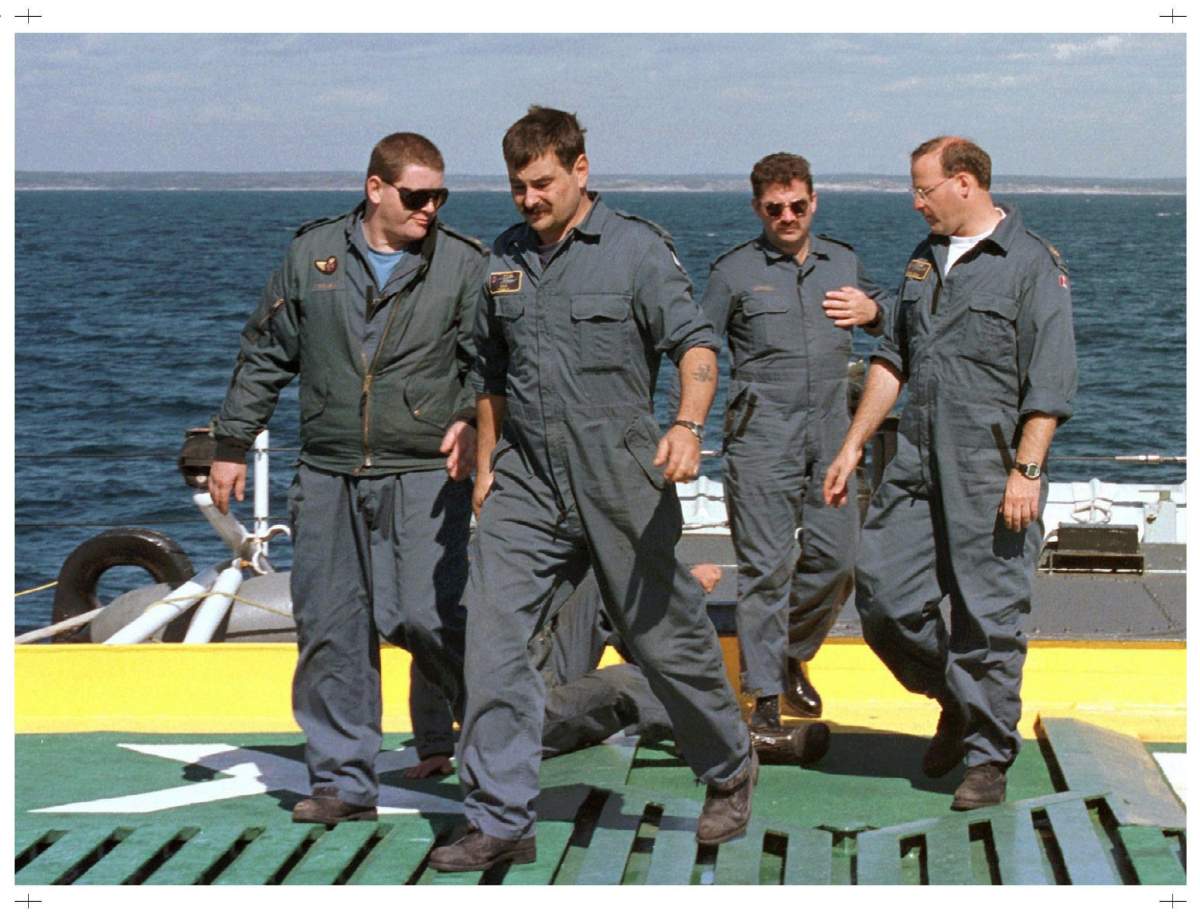It was around 11 a.m. on the night of Sept. 2, 1998, when Wendy Rafuse’s pager went off.

The Chester Basin volunteer firefighter was told there was a plane crash with an unknown number of victims. It was only when she and other first responders arrived at Bayswater Beach that the full scope of the tragedy became clear.
Swissair Flight 111, which had been en route from New York City to Geneva, Switzerland, had crashed into the ocean off Nova Scotia.
All 229 people on board perished.
“Unfortunately at the time then, we found out that this plane had crashed out on the water. There was nothing that those of us who had responded on land could do,” Rafuse recalled.
“I remember clearly the drive home or back to the fire hall that night, how quiet it was because normally we’re chit-chatting about this and that and everything. It was a very sombre return back to the fire hall.”
READ MORE: The night 229 people lost their lives on Swissair Flight 111
The rescue mission quickly turned into one of recovery, as military members, RCMP officers, transportation officials and lab technicians all gathered at CFB Shearwater.

Rafuse was seconded by the province and RCMP to head the critical incident stress management program. For the next few months, she would counsel the first responders tasked with the unthinkable job of recovering remains and piecing together the plane as part of the investigation.

Get daily National news
“The majority of them had experienced things that they had never ever signed up for, really. It was totally new for them,” she said.
“The people who were out there, the first responders, when we go to terrible things they’re dealing with dead bodies and that sort of thing. But that’s what it is. It’s a body. When it was Swissair, there was only one victim that was recognizable with a body.”
Each day, she would sit and meet with the responders as they came in and out of the morgue. The comfort centre was stocked with healthy food, newspapers, phones to call home and a listening ear.
“It was just meeting with them, giving them a safe place to talk to get things off their chest, so to speak,” she said.
As the days wore on, the grief magnified. The stress was so severe, some were asked to be relieved from duty in the days following the tragedy. The military equated the operation to wartime conditions.
“There’s an overwhelming feeling of helplessness,” said one official during a news conference in the days following the crash.
“It is a reaction to a very unusual event, an event outside the range of normal human experience.”
WATCH: Peter Richardson on the ‘devastating’ work carried out after the Swissair Flight 111 crash

Rafuse believes the critical incident stress management program was instrumental back then in helping those first responders but admits there were challenges.
“Twenty years ago, people weren’t as quick to want to talk to someone in regards to their emotional and mental health,” she said.
“Thankfully, today that’s changing. There’s been more talk about PTSD and everything else that goes along as far as mental health and so people are more forthcoming and willing to talk about the betterment of their own health.”
RCMP Sgt. Duane Cooper spent more than two years immersed in the tragedy, beginning the morning after the plane crash. He was immediately tasked with heading out into the water and recovering whatever he could from the ocean floor.
That included human remains, luggage, personal effects and the pieces of the plane that would later be meticulously examined as part of the investigation.
Cooper says working with the families of the victims was the hardest part of the operation.
“For me, that was very, very difficult and very difficult for the families to come and see what we were doing, and oftentimes we would have to meet with them, take them on a tour, answer their questions,” he recalled.
“Sometimes actually return personal belongings from some of the victims to family members, and for me that was probably the most difficult part because as you can imagine. It was a very emotional experience for the relatives to have to go through that process.”
READ MORE: Peggy’s Cove residents stepped up following Swissair crash
But Cooper says he also found solace in being able to provide answers to the families.
“It’s the kind of thing you never forget, it’s probably one of the most … it’s affected me the most in my career as far as an investigation. I mean I spent two years working on this file, this investigation, with the goal of trying to give answers to the family members as to what happened with the accident.”
Both Rafuse and Cooper say the events of Sept. 2, 1998, have left a mark on their lives, and they plan to honour the anniversary privately.









Comments